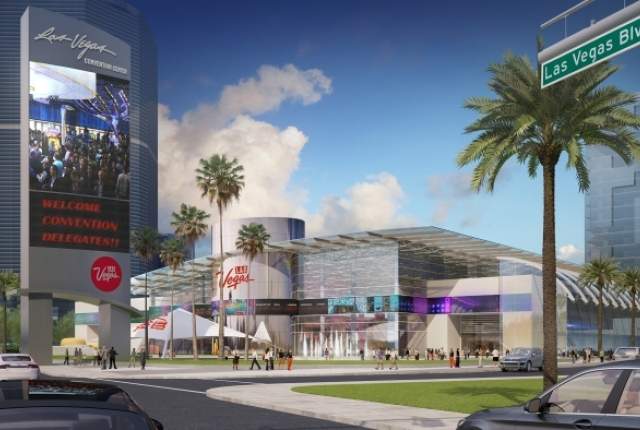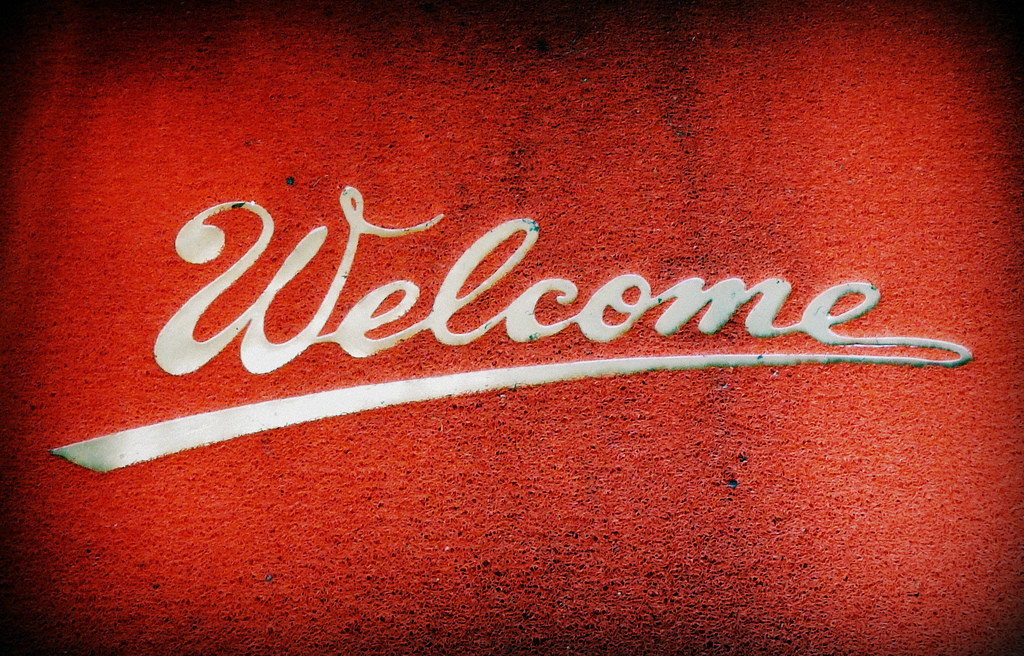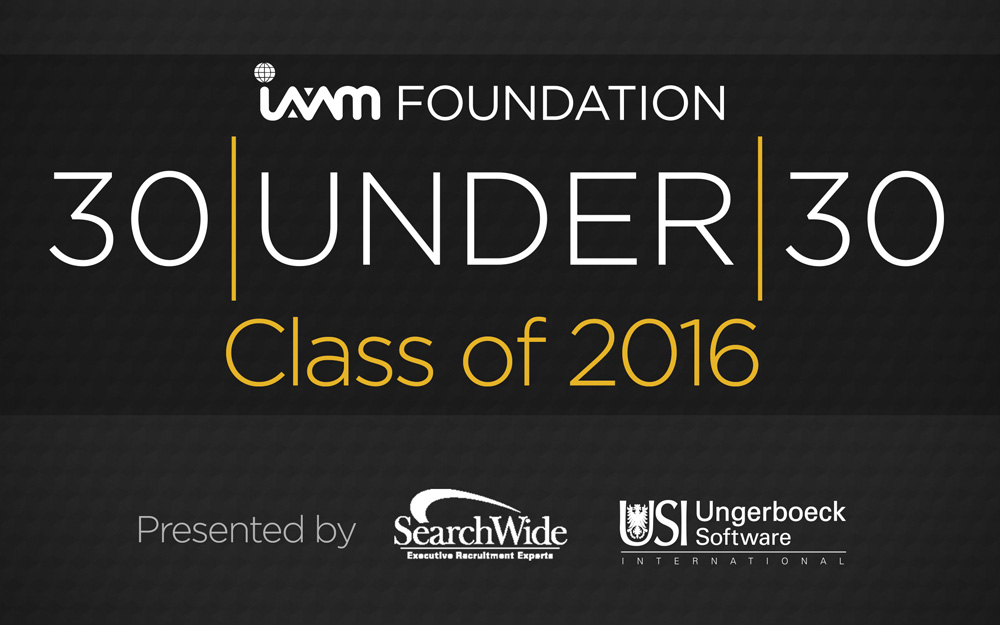News You May Have Missed
These are selected news articles that showed up in our inboxes on Monday morning that we want to pass along to you.
Panel Members Get Detailed View of $2.3B Las Vegas Convention Center Redo (Las Vegas Review-Journal)
“The committee took the information under advisement in the fourth of five fact-finding sessions and will revisit it early next year when it undertakes prioritization of projects and identifying potential funding sources.”
Cincinnati Bengals Head Groundskeeper Shares Best Practices About Often Overlooked Part Of Sports (SportTechie.com)
“For those not familiar with the term, fraze mowing is a technique employed by sports turf managers which removes weeds, organic matter and vegetation from the top of the field.”
Frank Lloyd Wright-Designed Monona Terrace Convention Center Awarded LEED Gold in Building Sustainability (3BL Media)
“The facility has steadily attracted green conferences and conventions, demonstrating a return on the investment in the 2007 Silver certification and 2015 Gold recertification process.”
Perth Stadium Build Reaches Highest Point (The West Australian)
“Part of the new Perth Stadium has reached its maximum 42m height with the first of 50 roof trusses installed.”
The Top 15 Sporting Events That Blew Up Twitter in 2015 (Mashable)
“The year didn’t include a men’s World Cup, so that eliminated an obvious winner. The Women’s World Cup, however, finished third in Twitter’s end-of-year rankings. And the Super Bowl? It’s way down in eleventh place — but we’ll explain why.”
(Image: Las Vegas Convention and Visitors Authority)
Welcome, New IAVM Members!
Please welcome our newest members who joined IAVM May-October 2015—a total of 497 new members. That’s great news, because it shows your network of professionals is growing. Thank you for being a part of the association!
Also, let us get to know you better by participating in the I Am Venue Management series. Please visit http://www.iavm.org/i-am-venue-management-share-your-story to share your story and photo.
On the NICE List – Setting Holiday Building Schedules
In today’s venue, managers rely on automation and control systems for many daily functions – maintaining and adjusting HVAC set points, controlling audiovisual systems throughout a building, turning lights on and off with predefined schedules for energy conservation are just a few. Often times these become “daily schedules” that we set and forget. As we approach the holiday season, this is a good time of year to review those schedules and consider creating a “holiday” mode for our buildings that may sit dark for several days. In such a mode, daily schedules for office and corridor lights could be suspended, security lighting reduced, and HVAC set points could be changed to minimize utility costs for empty buildings. Having a “holiday” mode that makes these adjustments automatically can easily help venue managers control expenses and celebrate the holidays while being green.
(Image: Veronica Aguilar/Creative Commons)
Convention Industry Council Joins Wi-Fi Coalition

The Convention Industry Council (CIC) has joined the IAVM-led Wi-Fi Coalition whose members include a cross section of the convention industry professionals.
“Wi-Fi, while a key commodity that many meeting attendees and consumers feel the need to access, is not free. The cost of bandwidth, and other related factors, affect its efficiency, making it even more imperative to deliver a successful connection for a meeting or event,” the CIC said in a press release. The coalition was initially formed to address the backlash against venues blocking personal Wi-Fi devices and the subsequent involvement of the FCC.”
The Wi-Fi Coalition’s main goal is to establish standard operating principles and rules that ensure a reliable Wi-Fi environment for all users. A “common sense standards” is currently being developed.
“We believe that delivering an exceptional technology experience at meetings and events requires a new level of collaboration and dialogue between venue managers, service providers, show organizers, meeting planners, exhibitors, and guests,” said Vicki Hawarden, CMP, president and CEO of IAVM. “We are thrilled to see the coalition bringing these groups together, and we are confident that this new effort will lead to meaningful results.”
The Wi-Fi Coalition members include
Vicki Hawarden, CMP, CAE—IAVM
Fred Peterson—Massachusetts Convention Center Authority
Mark Haley—Smart City Networks
Mark Sims—Javits Center
John Rissi—PSAV, CIC APEX Chair
David DuBois, CAE, FASAE, CTA, CMP—Intl. Association of Exhibitions and Events
Cathy Breden, CMP—Intl. Association of Exhibitions and Events
Chris Brown—National Association of Broadcasters
Ryan Stowger—Intl. Association of Amusement Parks and Attractions
Barney Lavengood—Indiana Convention Center and Lucas Oil Stadium
Michael Owen—EventGenuity
Brett Mitchell—Overland Park Kansas Convention Center
Glenda Brungardt—HP Marketing
Jim Wurm—Exhibit & Event Marketers Association
Stacey Knoppell—Baltimore Convention Center
Russell Rice—Convention Sales Professionals Intl.
To better understand this topic, please read Part 1 and Part 2 of our series, “The Wi-Fi Dilemma.”
2016 30|UNDER|30 Nominations Now Open
Do you have a young professional working for you that has a bright future in the industry? Nominate your employee to be one of 30 venue industry professionals, 30 years of age and under, who will receive a travel stipend of US$850 and complimentary registration (value: $1,1185) to attend VenueConnect, IAVM’s Annual Conference & Trade Show, in Minneapolis, Minnesota, July 23-26, 2016. Recipients will be recognized throughout the annual meeting and formally at the Venue Industry Awards luncheon on Monday, July 25, 2016.
Launched at VenueConnect in Baltimore, the inaugural IAVM Foundation 30|UNDER|30 class of 2015 kicked off the program by participating in the IAVM Foundation’s Legacy Project and UpStart: Emerging Leaders Experience, in addition to exclusive 30|UNDER|30 and Young Professional networking events before being honored at the Venue Industry Awards luncheon. By participating in education and professional development sessions geared toward young professionals throughout the conference, many 30|UNDER|30 recipients returned to their venues with renewed enthusiasm for their jobs as well as industry.
“They talked about how amazing it was to have the chance to converse with other people from every size and type of facility and to hear the panels or classes they previously would not have had the ability to be exposed to,” said Kerry Painter, CFE, CEM, CMP, assistant general manager at the Cox Business Center in Tulsa, Oklahoma. “It was an inspiration for them and in some ways permission in the future to continue to reach out to industry colleagues who they now know. ‘Knowing what other buildings do makes you start to think what you’re doing and that it can always be better. It helps you learn, grow, and think more than you did before’ was the quote from one of our winners.”
Supporting young professionals in the industry through a program like 30|UNDER|30 is key to the profession’s growth.
“If we want to keep young professionals engaged and desiring a career in venue management, then we need to get them involved in the industry outside our buildings as soon as possible,” said Robyn Williams, CFE, executive director of Portland’5 Centers for the Arts.
Brad Mayne, CFE, president and CEO of MetLife Stadium, agrees with Williams.
“It is important to get our young professionals networking and professional development opportunities so they are exposed to multiple and diverse experiences in our industry,” Mayne said. “The impressive programs, custom made for millennials, at VenueConnect will help propel their knowledge and experience, making them a greater asset for our organization.”
Painter said the impact of not only being nominated but having to work for the achievement is powerful.
“The educational and social experience was of a quality I have not often seen in a conference and the recipients left with renewed enthusiasm, relationships in both peers and mentors, and a better idea of the professional world they are setting out to conquer,” Painter said. “They will become valuable to our industry in the future because of programs such as this. You absolutely should not hesitate to nominate your young rock stars. They will be fired up upon returning to your venue and the organization as a whole will be stronger for it!”
To learn more about the 30|UNDER|30 program or to nominate someone from your team, click here.
Do you want to receive a Front Row News weekly digest?
Categories
- Allied (856)
- Architecture (147)
- Arenas (744)
- Career (890)
- Convention Centers (889)
- Education (608)
- Events (1,528)
- Food & Beverage (193)
- Foundation (113)
- Guest Experience (1,482)
- Industry News (2,253)
- Leadership (1,872)
- Marketing (150)
- Membership (1,985)
- Music (212)
- Performing Arts Centers (453)
- Professional Development (398)
- Research (127)
- Safety & Security (425)
- Sports (763)
- Stadiums (607)
- Student (159)
- Technology (515)
- Ticketing (92)
- Touring (82)
- Trends (357)
- Uncategorized (771)
- Universities (216)
- Video (25)
- Young Professional (198)
Twitter Feed
- Twitter feed loading
Recent Posts
- GEODIS Park Selects Allied Universal As Its Preferred Event Services Provider
- Venuworks Appoints Marc Solis as Executive Director of the Fresno Convention and Entertainment Center
- Los Angeles Convention Center Diverts 8,000 Pounds of Wood Waste to Local Foundation Supporting Fire Victims
- Fort Worth Unveils Plans for Phase 2 of Convention Center Transformation
- San Diego Convention Center CEO Announces Retirement After a Decade of Leadership
Categories
- Allied
- Architecture
- Arenas
- Career
- Convention Centers
- Education
- Events
- Food & Beverage
- Foundation
- Guest Experience
- Industry News
- Leadership
- Marketing
- Membership
- Music
- Performing Arts Centers
- Professional Development
- Research
- Safety & Security
- Sports
- Stadiums
- Student
- Technology
- Ticketing
- Touring
- Trends
- Uncategorized
- Universities
- Video
- Young Professional
Archives
- February 2026
- January 2026
- December 2025
- November 2025
- October 2025
- September 2025
- August 2025
- July 2025
- June 2025
- May 2025
- April 2025
- March 2025
- February 2025
- January 2025
- December 2024
- November 2024
- October 2024
- September 2024
- August 2024
- July 2024
- June 2024
- May 2024
- April 2024
- March 2024
- February 2024
- January 2024
- December 2023
- November 2023
- October 2023
- September 2023
- August 2023
- July 2023
- June 2023
- May 2023
- April 2023
- March 2023
- February 2023
- January 2023
- December 2022
- November 2022
- October 2022
- September 2022
- August 2022
- July 2022
- June 2022
- May 2022
- April 2022
- March 2022
- February 2022
- January 2022
- December 2021
- November 2021
- October 2021
- September 2021
- August 2021
- July 2021
- June 2021
- May 2021
- April 2021
- March 2021
- February 2021
- January 2021
- December 2020
- November 2020
- October 2020
- September 2020
- August 2020
- July 2020
- June 2020
- May 2020
- April 2020
- March 2020
- February 2020
- January 2020
- December 2019
- November 2019
- October 2019
- September 2019
- August 2019
- July 2019
- June 2019
- May 2019
- April 2019
- March 2019
- February 2019
- January 2019
- December 2018
- November 2018
- October 2018
- September 2018
- August 2018
- July 2018
- June 2018
- May 2018
- April 2018
- March 2018
- February 2018
- January 2018
- December 2017
- November 2017
- October 2017
- September 2017
- August 2017
- July 2017
- June 2017
- May 2017
- April 2017
- March 2017
- February 2017
- January 2017
- December 2016
- November 2016
- October 2016
- September 2016
- August 2016
- July 2016
- June 2016
- May 2016
- April 2016
- March 2016
- February 2016
- January 2016
- December 2015
- November 2015
- October 2015
- September 2015
- August 2015
- July 2015
- June 2015
- May 2015
- April 2015
- March 2015
- February 2015
- January 2015
- December 2014
- November 2014
- October 2014
- September 2014
- August 2014
- July 2014
- June 2014
- May 2014
- April 2014
- March 2014
- February 2014
- January 2014
- December 2013
- November 2013
- October 2013
- September 2013
- August 2013
- July 2013
- June 2013
- May 2013
- April 2013
- March 2013
- February 2013
- January 2013
- May 2012
- March 2012
- December 2011
- November 2011
- October 2011
Recent Comments
- Frank Bradshaw, Ph.D., CVE on John Meyer, CVE, a Tireless Advocate of Certification for Venue Professionals, Has Died
- Neil Sulkes on Hilary Hartung, Friend to Many in Venue Marketing, Has Left Us
- Jason Parker, CVE on The Devastation of Hurricane Helene and How We Can Support One Another
- Larry Perkins on Touhey Testifies Against Speculative Ticketing Before Congressional Subcommittee
- Peter Secord on Major Players for Planned Elkhart Amphitheater Were in the Mix at VenueConnect




